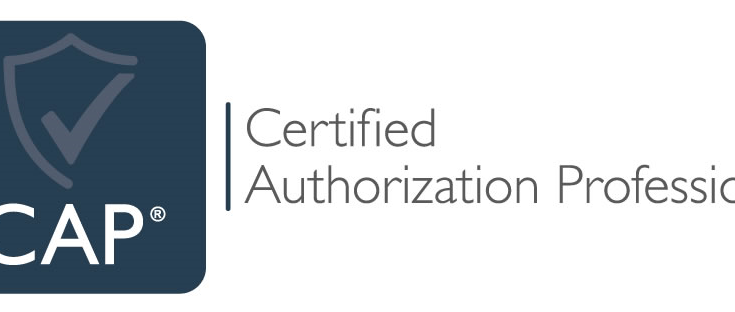In today’s digital age, where sensitive data is at the heart of nearly every business and government operation, safeguarding that information has become paramount. As technology continues to advance, so do the threats and vulnerabilities that put this information at risk. Certified Authorization Professional CAP Certification play a vital role in this ever-evolving landscape, ensuring that systems and data are secure, compliant, and in accordance with established regulations.
In this article, we will dive into the world of CAP certification, exploring what it is, why it matters, and how to become a CAP-certified professional.
What is CAP Certification?
Certified Authorization Professional (CAP) certification is a globally recognized credential offered by (ISC)², a leading organization in the field of information security. (ISC)², which stands for the International Information System Security Certification Consortium, is known for its rigorous certification programs designed to validate the skills and knowledge of cybersecurity professionals.
The Certified Authorization Professional CAP Certification focuses on the realm of information assurance and validates an individual’s ability to assess and manage risk, maintain security compliance, and implement security measures in accordance with established guidelines. CAP professionals are essentially responsible for the authorization and accreditation processes that ensure systems and data are secure.
Why Does CAP Certification Matter?
In an era where data breaches and cyberattacks are prevalent, organizations and government agencies require professionals who can effectively manage the security of their systems and data. CAP certification matters for several key reasons:
1. Expertise in Risk Management
CAP-certified professionals are equipped with the knowledge and skills to assess risks effectively. They can identify potential vulnerabilities in systems, evaluate the impact of those vulnerabilities, and develop strategies to mitigate these risks. This expertise is invaluable for organizations seeking to protect their data and systems from security threats.
2. Compliance with Regulatory Requirements
Many industries and government agencies must adhere to strict regulatory requirements, such as the Health Insurance Portability and Accountability Act (HIPAA), the Federal Information Security Management Act (FISMA), or the General Data Protection Regulation (GDPR). CAP-certified professionals are well-versed in these regulations and can ensure that an organization’s security measures align with them.
3. Efficient Authorization and Accreditation Processes
CAP professionals are skilled in the authorization and accreditation processes required to maintain security compliance. They can efficiently manage the documentation, testing, and evaluation phases, ensuring that systems and data meet the necessary security standards.
4. Enhanced Career Opportunities
CAP certification is widely recognized and respected in the field of cybersecurity. Holding this credential can open doors to a wide range of career opportunities, including roles in risk management, compliance, security auditing, and system authorization.
5. Demonstrated Commitment to Professional Development
Achieving CAP certification demonstrates a professional’s commitment to ongoing education and development in the field of information security. (ISC)² requires certified professionals to earn continuing education credits to maintain their certification, ensuring that CAPs stay current with industry best practices.
Who Should Pursue CAP Certification?
CAP certification is ideal for professionals who work in or aspire to work in the field of information security. The following individuals can benefit from pursuing CAP certification:
1. Information Security Managers: Those responsible for managing an organization’s information security program can enhance their skills and credibility by obtaining CAP certification.
2. Risk Managers: Professionals who focus on assessing and managing risks, especially in the context of information security, can broaden their expertise and career prospects through CAP certification.
3. Compliance Officers: Individuals responsible for ensuring an organization’s compliance with industry-specific regulations will find CAP certification beneficial.
4. Systems Administrators: CAP certification can help system administrators better understand the security aspects of their roles and contribute to the overall security of an organization.
5. Cybersecurity Analysts: Those seeking to advance their careers in the cybersecurity field can gain a competitive edge by becoming CAP-certified.
6. IT Auditors: Professionals responsible for auditing and assessing the security of an organization’s IT systems can improve their audit skills and knowledge through CAP certification.
The Certified Authorization Professional CAP Certification Process
Obtaining CAP certification is a multi-step process that includes meeting specific prerequisites, passing the CAP exam, and maintaining the certification through continuing education. Let’s break down the process step by step:
1. Meet the Prerequisites:
Before you can register for the CAP exam, you must meet certain prerequisites. The typical requirements for CAP certification include:
- A minimum of two years of cumulative, paid work experience in one or more of the seven domains of the CAP Common Body of Knowledge (CBK). This experience can be reduced to one year if you hold a degree in information assurance or a related field (e.g., cybersecurity, information security).
- Knowledge of the Risk Management Framework (RMF), as outlined in NIST Special Publication 800-37, is highly recommended.
2. Prepare for the Exam:
Once you meet the prerequisites, it’s time to prepare for the Certified Authorization Professional CAP Certification exam. (ISC)² provides a variety of study resources, including official study guides, practice exams, and training courses. It’s essential to study the domains of the CAP CBK, which include:
- Information Security Risk Management
- Security Assessment and Authorization
- Security Control Monitoring and Analysis
- Security Control Assessment
- Security Control Selection
- System and Security Architecture
- Security Authorization
3. Pass the CAP Exam:
“The CAP exam consists of 125 multiple-choice questions“, and you have up to 3 hours to complete it. To pass, you must achieve a minimum score of 700 out of 1000 points. The exam is administered at Pearson VUE test centers around the world.
4. Agree to the Code of Ethics:
As with many professional certifications, CAP candidates must agree to adhere to the (ISC)² Code of Ethics. This code establishes a set of ethical principles that certified professionals must follow to maintain the integrity of the field.
5. Obtain Endorsement:
After passing the exam, you must have your CAP certification endorsed by an (ISC)²-certified professional in good standing. The endorser attests to your professional experience and your commitment to the Code of Ethics.
6. Maintain Your Certification:
Certified Authorization Professional CAP Certification is valid for three years. To maintain your certification, you must earn Continuing Professional Education (CPE) credits. CPE activities include attending training sessions, conferences, webinars, and other educational events related to information security. You must earn a minimum of 90 CPE credits during each three-year certification cycle and adhere to the (ISC)² Code of Ethics.
Benefits of CAP Certification
Certified Authorization Professional CAP Certification offers a multitude of benefits to both individuals and organizations. Let’s explore some of the advantages:
1. Career Advancement:
CAP-certified professionals often find themselves in high demand. They can pursue roles in risk management, compliance, security auditing, and other areas within the information security field, leading to career advancement and increased earning potential.
2. Industry Recognition:
(ISC)² certifications are globally recognized and respected. CAP certification demonstrates your commitment to the highest standards of information security and compliance, making you a valuable asset in the job market.
3. Enhanced Knowledge and Skills:
The CAP certification process involves rigorous study and examination of key information security domains. As a result, certified professionals gain a deeper understanding of risk management, compliance, and security authorization processes.
Also Read: Certified Professional in Supplier Diversity Certification
FAQ – Frequently Asked Questions
Q1: What is Certified Authorization Professional CAP Certification ?
The Certified Authorization Professional (CAP) certification is a globally recognized credential for professionals involved in authorizing and maintaining information systems.
Q2: Who is the CAP certification designed for?
Certified Authorization Professional CAP Certification is designed for information security professionals, including those responsible for the assessment and authorization of information systems.
Q3: What are the key domains covered in the CAP certification exam?
CAP certification domains include Risk Management Framework (RMF), Security Assessment, Security Control Assessment, Authorization and Continuous Monitoring, and Information System Authorization.
Q4: Why is CAP certification important in the field of cybersecurity?
CAP certification validates an individual’s expertise in information security risk management and demonstrates their ability to assess and authorize information systems effectively.
Q5: How can I prepare for the CAP certification exam?
You can prepare for the Certified Authorization Professional CAP Certification exam by studying relevant materials, attending training courses, and gaining practical experience in risk management and authorization processes.
Q6: Are there any prerequisites for the Certified Authorization Professional CAP Certification ?
Yes, candidates are required to have a minimum of two years of cumulative work experience in one or more of the seven CAP domains.
Q7: Is the CAP certification recognized internationally?
Yes, the CAP certification is recognized worldwide and is often sought after by government agencies, organizations, and industries.
Q8: What are the career opportunities for CAP-certified professionals?
CAP-certified professionals can work in various roles, including Information System Security Officer (ISSO), Security Consultant, Risk Manager, and more.
Q9: How long is the CAP certification valid, and how can I maintain it?
CAP certification is valid for three years. To maintain it, you need to earn Continuing Professional Education (CPE) credits and pay an annual maintenance fee.
Q10: Where can I take the CAP certification exam, and what is the cost?
You can take the CAP exam at Pearson VUE test centers. The cost may vary, so it’s advisable to check the (ISC)² website for the most up-to-date pricing information.
Remember to check the (ISC)² website for the most current information regarding the CAP certification and its requirements.
Conclusion
Achieving Certified Authorization Professional CAP certification is a significant milestone for any professional in the field of information security and cybersecurity. CAP certification demonstrates a comprehensive understanding of the Risk Management Framework (RMF) and the ability to assess, authorize, and maintain information systems in accordance with government and industry standards. This certification not only validates one’s expertise but also opens doors to various career opportunities in both the public and private sectors.
CAP-certified individuals are equipped to effectively manage and mitigate security risks, ensuring the confidentiality, integrity, and availability of sensitive information. Furthermore, the continuous renewal and professional development requirements for CAP certification reflect the dynamic nature of the cybersecurity field, reinforcing the commitment to staying current in an ever-evolving landscape. In conclusion, CAP certification is a testament to an individual’s knowledge and skills in the realm of authorization and accreditation, underscoring their commitment to safeguarding critical information systems and assets.




